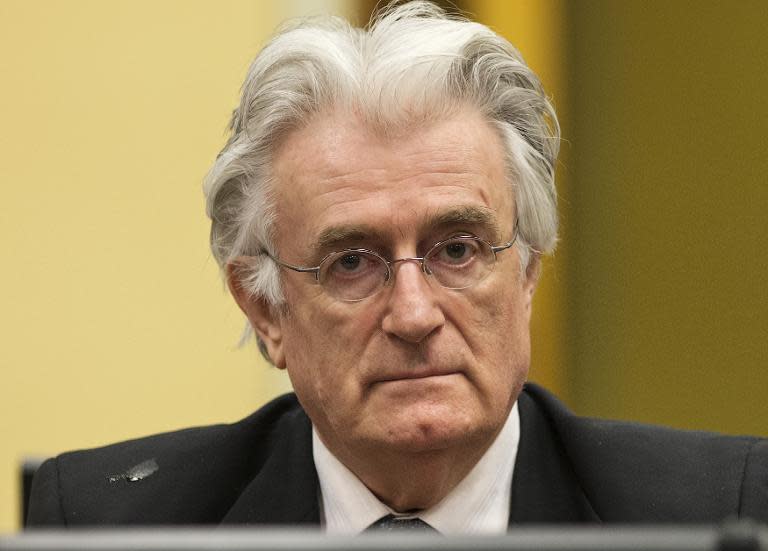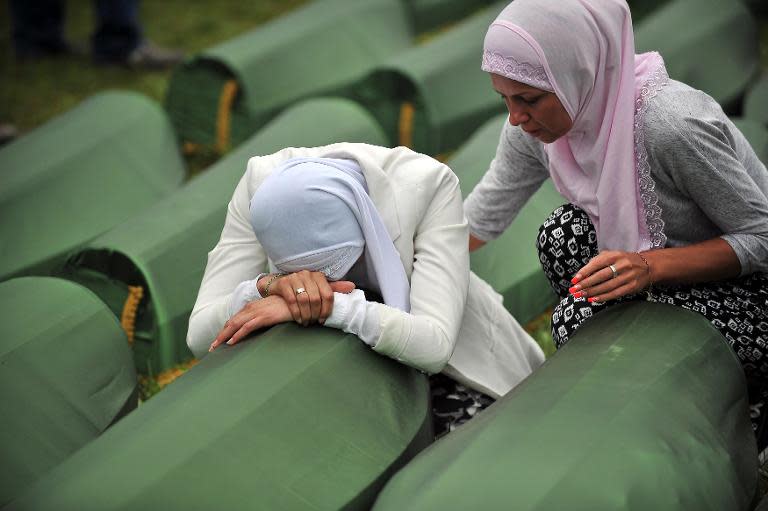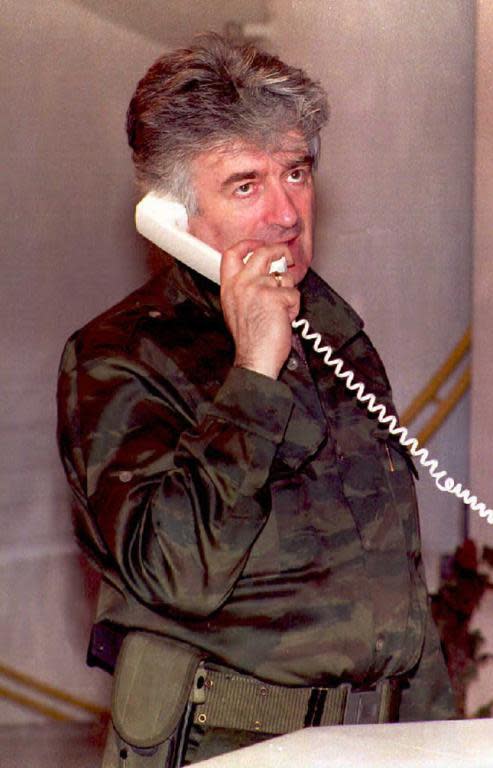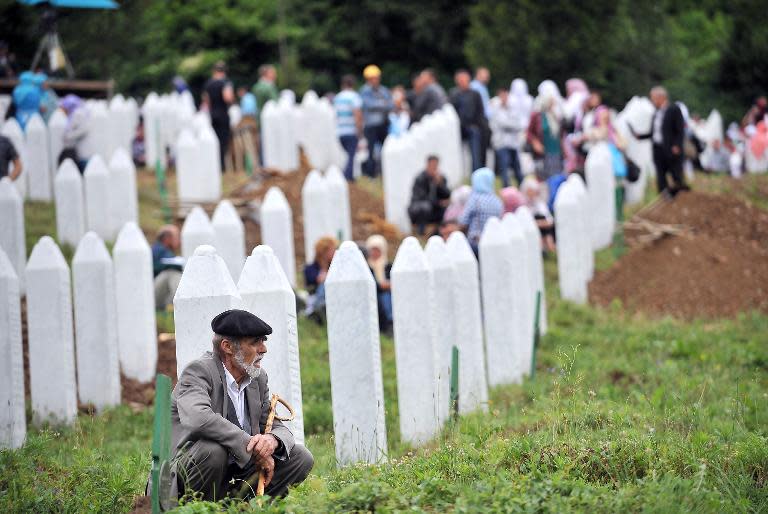'I will be acquitted,' Karadzic tells war crimes court
Radovan Karadzic did not know of the 1995 massacre of thousands of Muslims at Srebrenica, his lawyer said Thursday, with the former Bosnian Serb leader defiantly telling the UN tribunal he would be acquitted. "There is not a single piece of evidence that Dr Karadzic planned or ordered the execution of prisoners (at Srebrenica), or that he knew about it," his legal advisor Peter Robinson told the Hague-based UN Yugoslav war crimes court. "In fact they (the events) were concealed from him and therefore he is not guilty of genocide," Robinson said in the second and final day of the defence's closing arguments before the International Criminal Tribunal for the former Yugoslavia (ICTY). Once one of Europe's most wanted men, Karadzic, 69, denies charges of genocide, war crimes and crimes against humanity for his role in the 1990s Balkans conflict. A final verdict in the marathon five-year trial is not expected before late 2015. Karadzic is accused of being one of the masterminds of ethnic cleansing during Bosnia's brutal 1992-95 civil war that claimed more than 100,000 lives and made refugees of 2.2 million people. The president of the former self-proclaimed Bosnian Serb republic faces a total of 11 charges, most notably that of genocide for his alleged role in the Srebrenica massacre. - Worst massacre since WWII - Almost 8,000 Muslim men and boys were slaughtered and their bodies dumped in mass graves after Bosnian Serb forces overran the UN-protected enclave in eastern Bosnia in July 1995. The slaughter is deemed one of the bloodiest crimes committed on European soil since World War II. "If Dr Karadzic was truly guilty of the Srebrenica killings you would have heard something more than what the prosecution has presented in five years of trial," Robinson told the four-judge bench. "If you agree to the legal lynching as done by the prosecution, you will be convicting an innocent man," he added. Karadzic himself said he was told that reports of killings at Srebrenica were "nothing, they're lies" when he asked Bosnian Serb commanders about it. He then told the court: "I have no doubt about the outcome of the trial. I will be acquitted." Earlier on Thursday, Robinson asked that judges to drop another genocide charge against Karadzic relating to crimes committed elsewhere in Bosnia in 1992. Dressed in a charcoal suit, white shirt and striped tie and sporting his trademark carefully-coiffed silver hairdo, Karadzic listened intently as Robinson spoke, his glasses perched on his nose. - Moral responsibility - Although he has taken "moral responsibility" for the atrocities committed by Bosnian Serbs during the war, Karadzic denies the criminal charges. In his final trial brief filed this week, he also asked judges to look at mitigating factors should he be sentenced, including personal circumstances and his lack of prior convictions. Despite still claiming his innocence, Karadzic apologised to victims of the crimes, accepting responsibility as the serving president at the time. Prosecutors wrapped up their arguments on Tuesday saying life behind bars "would be the only appropriate sentence". They said Karadzic, along with late Serbian president Slobodan Milosevic and Bosnian Serb general Ratko Mladic, acted together to "cleanse" Bosnia's Muslims and Croats from Serb-claimed territories after the collapse of Yugoslavia in 1991. Milosevic died midway through his own trial in March 2006 and Karadzic's military alter ego Mladic went on trial in May 2012. Karadzic is also facing charges related to the sniping and shelling committed during the 44-month-long siege of the Bosnian capital Sarajevo, which ended in November 1995 by which time 10,000 people had been killed. Karadzic was arrested on a Belgrade bus in July 2008 disguised as a faith healer. His trial opened in October the following year.





